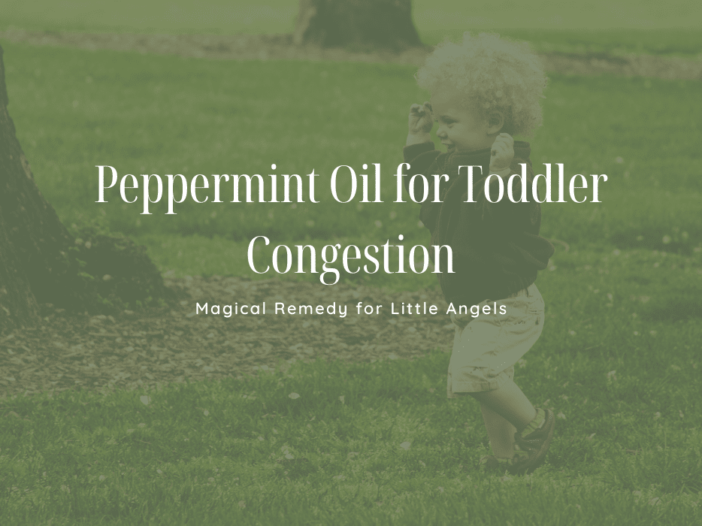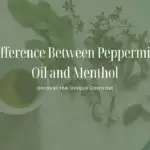
Peppermint Oil for Toddler Congestion
Looking for a natural remedy to ease your little one’s congestion? Look no further! Peppermint oil could be the answer you’ve been seeking.
In this article, we’ll delve into the benefits and precautions of using peppermint oil on babies. Extracted from the peppermint plant, this oil has long been praised for its ability to treat digestive issues, respiratory problems, and sinusitis. But when it comes to using it on infants, caution is key. Stay tuned to discover how peppermint oil can provide relief for your toddler’s congestion.
Understanding Toddler Congestion
If your toddler is experiencing congestion, it is important to understand the causes and possible remedies for relief. Congestion in toddlers can be caused by a variety of factors, such as allergies, colds, or sinus infections. Fortunately, there are natural remedies that can help alleviate congestion and provide relief for your little one. Steam therapy is an effective method that involves sitting with your child in a steamy bathroom or using a humidifier to add moisture to the air.

Nasal saline drops or sprays can also help to clear nasal passages and reduce congestion. Additionally, using a humidifier in your child’s room can help to keep the air moist and relieve congestion. However, it is important to note that essential oil diffusers should be used with caution around young children, as some essential oils may be irritating or harmful to them.
Benefits of Peppermint Oil for Toddler Congestion
Using diluted peppermint oil can provide relief for your congested toddler by helping to calm cough spasms and fight viruses and bacteria. Peppermint oil is a natural remedy that has soothing effects and provides respiratory support. It can help relieve symptoms of congestion, making it easier for your toddler to breathe.
The soothing properties of peppermint oil can also help alleviate discomfort and promote a sense of well-being. When used correctly and in the appropriate dilution, peppermint oil can be a safe and effective way to provide congestion relief for your little one.
Remember to always consult with a healthcare professional before using any essential oils on your toddler, especially if they have any underlying health conditions or sensitivities.
Precautions for Using Peppermint Oil on Toddlers
When using peppermint oil on your little one, it’s important to take precautions and dilute it properly to ensure their safety. Peppermint oil can provide relief for congestion in toddlers, but there are potential risks that need to be considered. Here are some precautions you should take:
- Dilution guidelines: Always dilute peppermint oil with a carrier oil before using it on your toddler. This helps to reduce the concentration and prevent any adverse reactions.
- Age restrictions: Peppermint oil should not be used on infants under the age of one. Their delicate skin and developing respiratory system may be more susceptible to allergic reactions or irritation.
- Allergic reactions: Before using peppermint oil on your toddler, perform a patch test to check for any allergic reactions. Discontinue use if any redness, itching, or swelling occurs.
- Medical consultation: It is always advisable to consult with a healthcare professional before using essential oils on your toddler. They can provide guidance specific to your child’s needs and advise on the appropriate use of peppermint oil.
Tips for Safely Using Peppermint Oil on Congested Toddlers
To safely alleviate your little one’s congestion, dilute the oil with a carrier oil and follow the guidelines provided. When using peppermint oil on toddlers, it is important to dilute it properly. The recommended dilution ratio for peppermint oil is 1-2 drops of oil per teaspoon of carrier oil. This ensures that the oil is not too strong for your child’s sensitive skin.
Additionally, it is important to note the age restrictions for peppermint oil use. Peppermint oil should not be used on infants under the age of one year. For application methods, you can blend the diluted peppermint oil with a carrier oil and gently massage it onto your toddler’s chest or back.
However, avoid applying it directly to their face or near their eyes. Potential side effects of using peppermint oil on toddlers include skin irritation or allergic reactions. It is always recommended to do a patch test before using any new essential oil on your child. If any adverse reactions occur, discontinue use immediately.
In terms of recommended essential oil blends for toddler congestion, you can try combining peppermint oil with eucalyptus or lavender oil. These blends can help alleviate congestion and provide relief for your little one. Remember, always consult with a healthcare professional before using essential oils on your child.
Alternative Remedies for Toddler Congestion
If your little one is experiencing congestion, there are alternative remedies and alternate essential oils that can provide relief. Here are four natural remedies that can help alleviate your toddler’s congestion:
- Steam therapy: Create a steamy environment in the bathroom by running a hot shower and sitting with your child for a few minutes. The warm steam can help loosen mucus and clear the nasal passages.
- Essential oil blends: Certain essential oils, such as eucalyptus and lavender, can help soothe congestion. Dilute a few drops of the oil in a carrier oil and apply it to your child’s chest or back for gentle relief.
- Saline drops: Saline drops can be used to moisturize and clear your toddler’s nasal passages. Simply tilt their head back slightly and administer a few drops into each nostril.

- Humidifier use: Using a humidifier in your child’s room can help add moisture to the air and ease congestion. Make sure to clean the humidifier regularly to prevent the growth of bacteria.
Frequently Asked Questions
1: Can I Use Peppermint Oil Directly on My Toddler’s Chest to Relieve Congestion?
Yes, you can use peppermint oil directly on your toddler’s chest to relieve congestion. It has expectorant properties that help unclog a blocked nose and diminish the effects of chest congestion. However, ensure to follow safety guidelines and consult with a healthcare professional.
2: Is It Safe to Use Peppermint Oil on Toddlers With Asthma or Fragile Airways?
Using peppermint oil on toddlers with asthma or fragile airways is not recommended. However, there are safe alternatives and natural remedies for toddler congestion. It’s important to take precautions when using essential oils on toddlers and find safe ways to relieve congestion.
3: How Should I Dilute Peppermint Oil for Use on Congested Toddlers?
To dilute peppermint oil for congested toddlers, use a safe dilution ratio like 1% or less. Follow safety precautions by avoiding direct application to the nasal or chest area. Consider alternative remedies and application methods for potential benefits.
4: Are There Any Potential Side Effects of Using Peppermint Oil on Toddlers?
When using peppermint oil on toddlers, it’s important to be aware of potential risks. Allergic reactions can occur, so it’s crucial to use proper dosage and take necessary precautions. Consider alternative remedies as well.
5: Are There Any Age Restrictions for Using Peppermint Oil on Congested Toddlers?
Using peppermint oil for toddler congestion can provide benefits like relieving cough and fighting viruses. However, there are precautions and age restrictions. Dilute the oil, avoid direct application, and consult a healthcare professional for dosage recommendations.
In a nutshell, peppermint oil can be a beneficial natural remedy for relieving toddler congestion. However, caution must be exercised when using it on babies, as direct application or ingestion of undiluted oil can be dangerous. It is best to consult with a medical professional and use a highly diluted form of peppermint oil for babies over one year old. By following these precautions, you can safely harness the benefits of peppermint oil to provide relief for your little one’s congestion.



